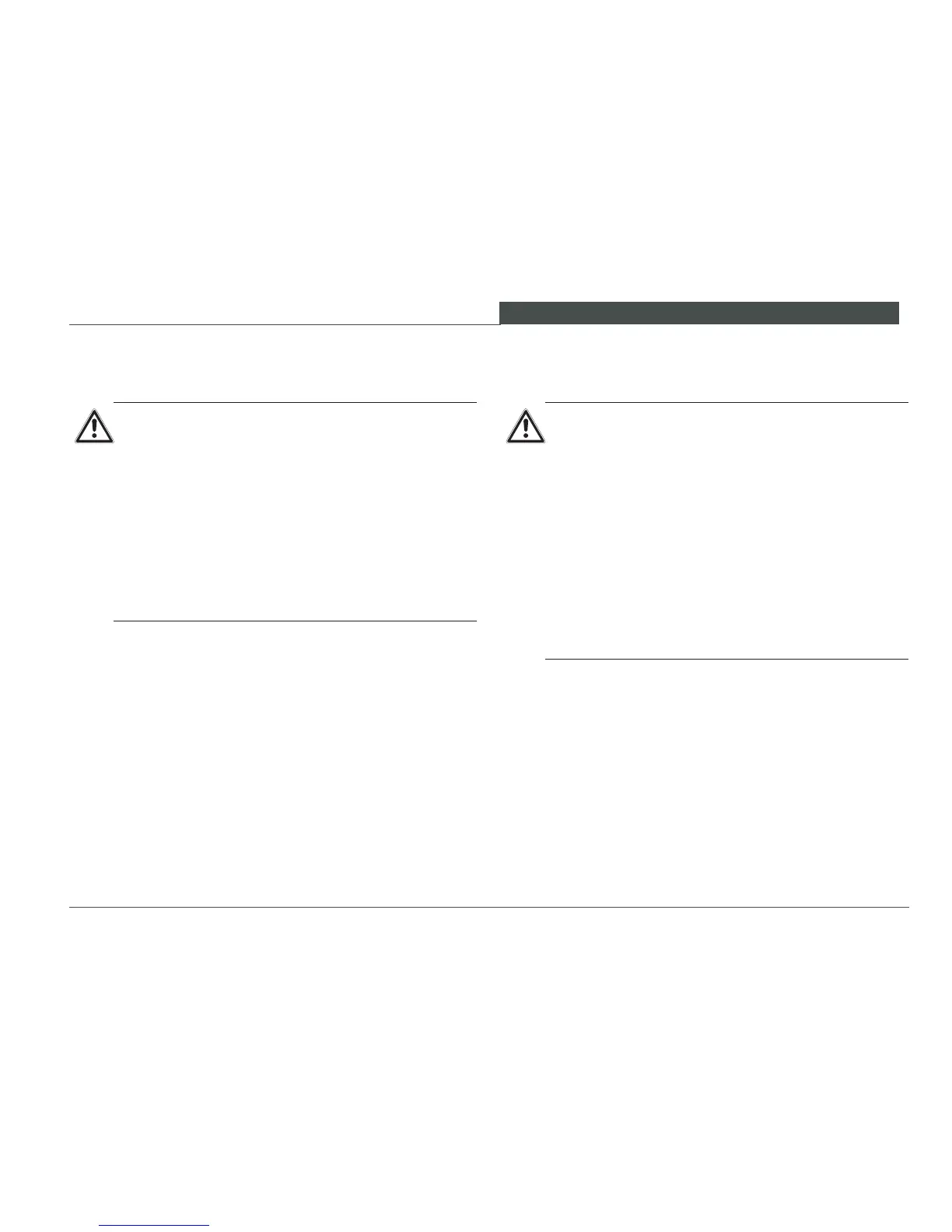S E R V I C I N G A N D I N S PE C T I O N
135
W L 3 0
Batteries
Explosion hazard.
A rapidly discharged battery vents explosive gases.
• Do not use open ames or smoke near batter-
ies. -Use particular caution to vent the battery
storage area well to avoid gas accumulation.
•
Follow jump start procedures to reduce the po-
tential for arcing when the cables are connected
and disconnected.
•
Do not place metallic objects on or near the
battery terminals to avoid short circuits from
contact with both poles of the battery. This will
generate extreme heat and potentially ignite
explosive battery gases.
Personal injury hazard. Battery acid is corrosive
to metallic surfaces and harmful to human skin.
•
Wear protective clothing, goggles and gloves
when working near batteries.
• If battery acid contacts the skin, wash immedi-
ately in clear water.
•
Seek the advice of a doctor for treatment of
skin burns.
•
In the event acid contacts eyes, rinse imme-
diately with clear water and seek immediate
medical attention.
•
Always take off jewelry and metal watches before work-
ing on the battery or the electrical system.
•
Dispose of old batteries in an ecologically sound way,
separate from other waste.
